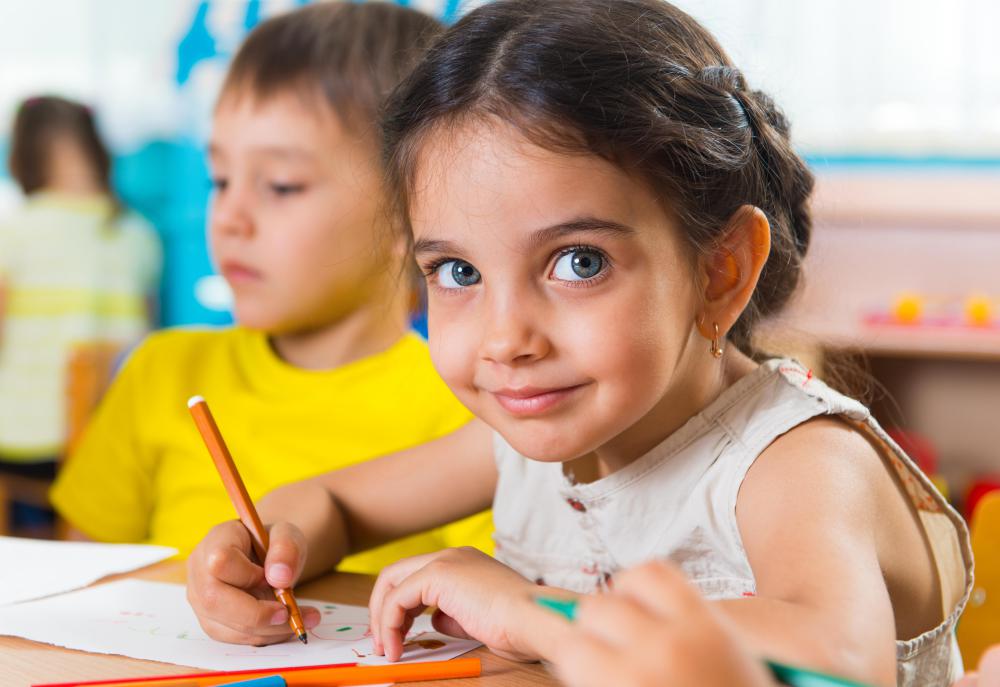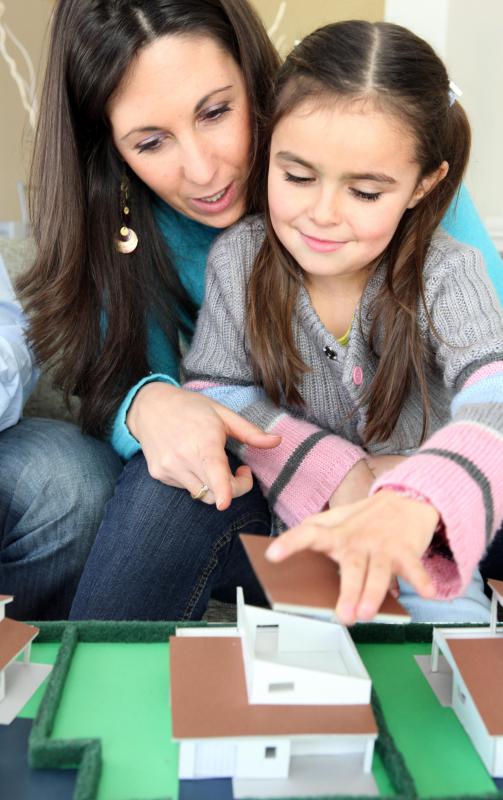At WiseGEEK, we're committed to delivering accurate, trustworthy information. Our expert-authored content is rigorously fact-checked and sourced from credible authorities. Discover how we uphold the highest standards in providing you with reliable knowledge.
What Are the Required Motor Skills for Kindergarten?
Children entering kindergarten need to have mastered a set of fine and gross motor skills. Fine motor skills for kindergarten include being able to use scissors, controlling a writing implement, and showing a hand dominance preference. Mastering fine motor skills means a child will likely be able to learn to print letters and numbers and manipulate tools by hand. Essential motor skills for kindergarten also include broader physical abilities, like jumping, balancing, and throwing a ball. Every region and school is different, but most require that a child master basic fine and gross motor skills before being admitted to kindergarten.
Activities that strengthen the muscles of the hand and allow a child to build dexterity are ideal for building fine motor skills for kindergarten. Ideally, a child going into kindergarten will be able to print her own name, draw a picture with details like facial features or recognizable shapes, and cut out a simple shape with scissors. Coloring, playing with clay, drawing with a pencil, or painting with a brush all help a preschooler build up the muscles in her hands and wrists. Refining the fine motor skills for kindergarten doesn't have to be work; many fun games and craft activities double as suitable motor skill activities. Most preschoolers will naturally develop the motor skills for kindergarten simply by creating and playing.

Gross motor skills for kindergarten include the ability to run, climb, balance, and catch a ball. Most of these skills can be developed by normal outdoor play. Broad body movements that use up multiple muscle groups are required to master gross motor skills. Simple games and activities like throwing and catching a ball or climbing up a playground ladder will build the motor skills for kindergarten without feeling like hard work. Since gross motor skills are generally learned before fine ones, active play is an important part of preparing a child for kindergarten.

Every child develops at a different rate, and some will master motor skills before others. A child that excels at gross motor skills like balancing on one foot and climbing may need help mastering the finer points of using scissors. Kids that can competently write letters and numbers or draw detailed pictures may need to work on running and jumping skills. Developing the needed motor skills can and should be fun; most preschoolers will enjoy activities that are designed to build either type of motor skills for kindergarten.
AS FEATURED ON:
AS FEATURED ON:














Discussion Comments
@Ana1234 - It's important to remember, though, that not all children are going to develop at the same pace. In some cases children simply aren't going to keep up and parents won't have the necessary skills to help boost them.
I would definitely ask around for help if this is the case. Often kindergartens have special programs available for children to help them to catch up, or they will organize some kind of arrangement where a student can come in for afternoons or a couple of days a week to help them develop more quickly.
If you know your child is behind their peers of the same age, then it's better to investigate your options sooner rather than leaving it and hoping it will resolve itself.
@Fa5t3r - Those skills can be taught at home if the parents are willing and able to do it though. It doesn't have to be taught at preschool. You just have to encourage your child to pick up a paintbrush or pens and draw some pictures and get them to help around the house and so forth.
My grandmother apparently used to read and color with me when I was a toddler and my mother always said that's why I turned out to be such a bookworm. Encouragement from home and relatives is the very best way to teach kids.
Preschool is important for kids as well because once they enter kindergarten they are going to be expected to be able to fit into the social norms of a classroom and this can be difficult if they've never been in a class environment. I helped with a kindergarten class for a while and we had one student who had never had any sort of group interaction in a controlled setting, and it showed.
It took him a long time to settle down and understand how to control his impulses so that he wasn't always trying to be the center of attention.
His fine motor skills weren't great either and that actually made the whole thing worse, because it meant he was often taken out of main class work to have intensive lessons on writing numbers and recognizing letters.
I know it can seem hard to put your child into classes at a young age when it's not technically legally required, but it's so much better for them in the long run if they develop skills at the same pace as their peers.
Post your comments